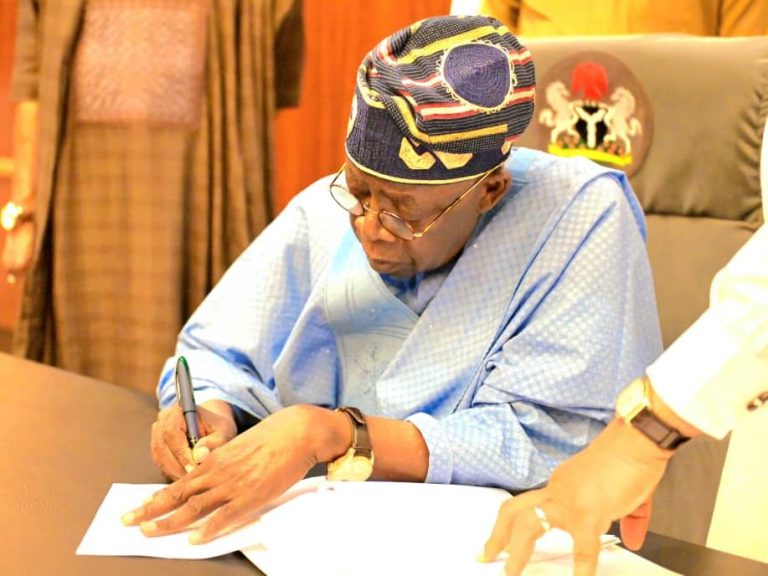By Fatima Zahra Muhammad
ASHENEWS reports that a group of 30 Civil Society Organizations (CSOs) has demanded that President Tinubu make public, his roadmap for tackling corruption in the country.
They have also called for the implementation of anti-corruption laws assented to by previous administrations.
The CSOs stated this during a press briefing held in Abuja on Tuesday.
Speaking on behalf of the CSOs, the Executive Director of the Civil Society Legislative Advocacy Centre (CISLAC), Mr. Auwal Ibrahim Rafsanjani expressed concern that the present administration was yet to show commitment to the fight against corruption.
“We are concerned by the lack of interest of the current administration in fighting corruption.
“Our most important call on the federal government is to declare a call on the fight against corruption. This will signify to Nigerians and the international community that the government is against corruption.
“This should be followed with sincere action to redeem the confidence of Nigerians and the international community,”
Rafsanjani said that although the level of success recorded by the Buhari-led administration in the fight against corruption was fair, the inaction of the present administration could further worsen the statistics.
“We have seen signs that if we don’t sustain and demand accountability, we may lose the gains we have achieved.
“So many lapses were created or left unattended, resulting in the ineffectiveness of anti-corruption frameworks.
“Tinubu did not show clear plans on how his administration seeks to fight corruption. This is alarming and we are worried that the administration had no direction in this regard,”
He lamented that the inability of the federal government to implement its anti-corruption framework has compounded Nigeria’s woes in the fight against corruption, coupled with a lack of awareness of the dangers of corruption at the state and local government levels.
“Nigeria holds a shameful record as the most corrupt country in West Africa.
“The rule of law which is a tenet of democracy has not been upheld, evident in the impunity by persons with vested interests who in our case are state and non-state actors,”
The groups advised the federal government to desist from considering officials under investigation for appointments.
“This will signify that it won’t be business as usual,” he said.
Rafsanjani, while urging President Tinubu to deploy some level of political seriousness equally tasked the National Assembly to desist from any act that will encourage corruption.
“The NASS equally needs to make the commitment and show genuine readiness to fight corruption.
Failure to do this means that the lawmakers have mortgaged the confidence of the people,”
The CSOs equally recommended that President Tinubu institutionalizes the concept of corruption prevention.
“This was one of the lapses of the Buhari-led administration. We don’t need to wait until they loot the country’s resources before we start going after them.
“The absence of this is also encouraging more and more people to join the league. There is therefore a need to enlighten and educate Nigerians to desist from supporting all acts of corruption,”
Other recommendations made by the CSOs include the systematic strengthening of the capacity of prosecutors, ensuring that only people of integrity are assigned to critical ministries such as the Ministry of Justice, public involvement, passage of the whistle-blower and victim protection law, implementation of the asset recovery act, fiscal responsibility act, money laundering act, OGP national action plan, as well as formulation of laws that allow for scrutiny of public officials and their assets.
The CSOs further recommended that the National Anti-Corruption Strategy adopted in 2018 be effectively implemented.
“We also recommend improved funding for anti-graft agencies to also guarantee their independence, scrutiny of financial reports from government institutions, intensifying efforts at addressing oil thefts, checkmating security sector corruption, increased support for the Code of Conduct Bureau, in addition to the introduction of state-level anti-corruption programs, “
A 30-page document compiled by all the CSOs was presented at the event.
The 30 pages document highlighted purposes, achievements, and lapses/ gaps in existing legal frameworks, anti-corruption institutions, and initiatives used by the Buhari administration and previous administrations in tackling corruption in Nigeria.


